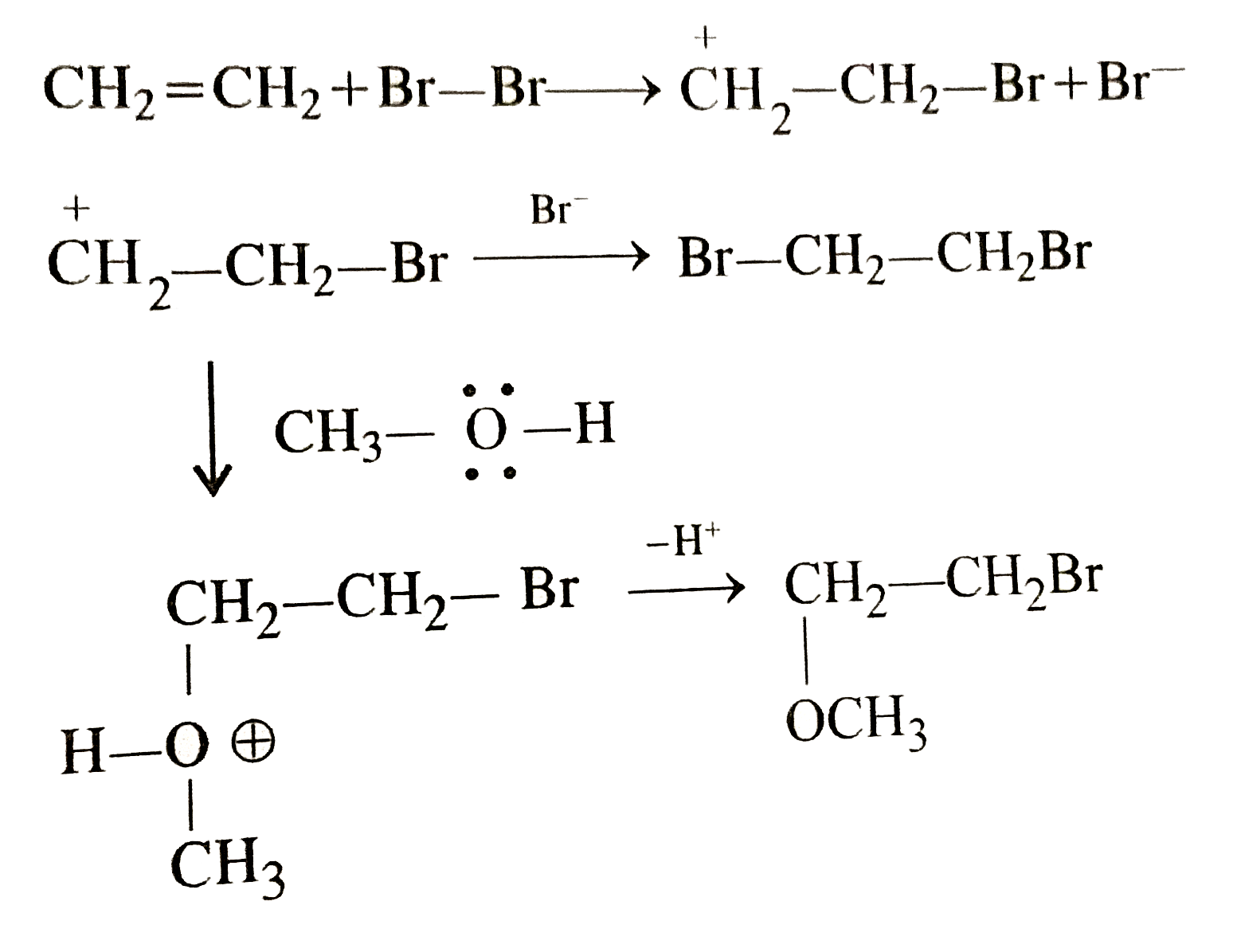In methyl alcohol solution, bromine reacts with ethyle (ethene) to yield BrCH2CH2OCH3 in addition to 1, 2-dibromoethane because
A
the intermediate carbocation may react with Br−orCH3OH
B
the methyl alcohol solvolates the bromide
C
the reaction follows Markownikov's rule
D
this is a free radical mechanism
Video Solution
Text Solution
The correct Answer is:A
|
Topper's Solved these Questions
Similar Questions
Knowledge Check
In methyl alcohol solution, bromine reacts with ethyle (ethene) to yield BrCH2CH2OCH3 in addition to 1, 2-dibromoethane because
AThe ion formed initially may react with Br or CH3OHBThe methyl alcohol solvates the bromineCThe reaction follows Markownikoff's ruleDThis is a free-radical mechanismIn methanol solution, bromine reacts with ethylene to yield BrCH2CH2OCH3 in addition to 1,2-dibromoethane because
Athe intermediate carbocation may react with Br− or CH3OHBthe methyl alcohol solvates the bromineCthe reaction follows Markownikoff's ruleDthis is a free radical mechanism.The IUPAC name of CH3CH2OCH(CH3)2is :
AisopropoxyethaneB2-methoxybutaneC1-methyl-1-methoxyethaneD2-Ethoxypropane
The IUPAC name of CH3CH2OCH(CH3)2 is:
View SolutionThe common name of the ether, CH2=CH−CH−2OCH3 is
View SolutionHBr reacts with H2C=CH−OCH3 under anhydrous conditions at room temperature to give:
View SolutionHBr reacts with CH2=CH−OCH3 under anhydrous conditions at room temperature to give
View SolutionIn the reaction
BrCH2−CH2Br+Zn→Y+ZnBr2,Y is
View Solution

